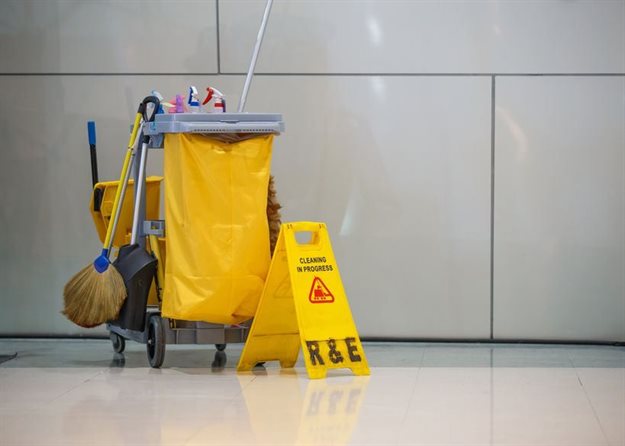
“The outbreak of the Coronavirus has had a dramatic impact on the risk management strategies and the health and safety plans for schools. As we have seen from countries where schools have recently re-opened their doors for pupils, the outbreak of Covid-19 has drastically changed the landscape of the educational environment. There can be no shortcuts when schools are preparing to be Covid-19 ready,” says Robert Palmer, head of Afroteq Advisory’s recently established OHSAfroteq division.
According to Palmer, there are various important measures that teachers, support staff and pupils will need to take and consistently adhere to as part of schooling in the “new normal” if they are serious about returning to a physical school environment. This includes diligently wearing the required PPE in and on the school premises at all times, downsizing the number of students in classrooms and no longer rotating pupils between classes. Instead, Palmer recommends that teachers should be the ones rotating classes in order to minimise the threat of spreading germs.
“Pupils and teachers will need to wear face shields or cloth face masks and to be reminded regularly throughout the day to thoroughly wash or sanitise their hands. Teachers and staff are responsible for cleaning and sanitising classrooms and common areas daily, combined with a weekly deep cleaning which entails fogging or demisting all areas, cleaning surfaces with disinfectant and sanitising all areas and/or surfaces. We recommend that this takes place on Fridays after the schooling week and urge schools to ensure that this service be rendered by a competent, registered company which can supply a certificate of service once the job is complete,” he says.
Even if pupils are kept in one classroom throughout the day and their movement is greatly restricted, OHSAfroteq says there are still certain ‘high risk’ areas where extra vigilance is required.
“All close proximity areas such as sanitary facilities and drop-off or pickup zones where the pupils’ movements are uncontrolled, should be regarded as high risk areas. For this reason, we strongly advise schools not to allow tuckshops, playgrounds, lunchrooms etc. to be opened to students during this time,” Palmer says.
Pupils and parents should also be responsible and pro-active by ensuring that personal items such as school bags, pencil cases, cellphones and stationery are cleaned and disinfected daily using a disinfecting wipe. As far as possible, pupils are advised to keep all non-essential items at home and opt for “ziplock” packaging for non-essential items.
As per WHO and Government regulations, schools and places of work should conduct a daily checking of temperatures of everybody who enters their premises.
“Ideally schools should have a security guard on duty at the main gate who is responsible for checking temperatures and screening everyone before they are allowed to enter the school grounds. However, if this is impractical or creates congestion at larger schools, we recommend that designated screening areas be identified where a Covid-19 compliance officer will be responsible for the screening process. Detailed records must be kept of every screening, listing the temperature reading and visual symptom of inspection,” he says.
Every school should ensure that it has an adequately sized isolation room or area that is large enough to accommodate 10% of the population of the school complement, whilst maintaining the prescribed social distancing of a minimum of 1.5m. In most cases, OHSAfroteq suggests that schools consider converting a section of the school hall into a quarantine area equipped with the required PPE, such as FPP1 surgical masks, gloves and face shields beds (where possible).
Palmer stresses the importance of schools following a standard operating procedure for dealing with a suspected Covid-19 infection at schools. Such a workplace plan should involve isolating the student or staff member immediately, providing them with the required PPE, following the screening protocol and keeping records, contacting the relevant authorities to report the case and acting on their instructions. It is also important to gather all the necessary information from the patient, such as travel history, names of people they had contact with in the last 14-21 days and who might have had (or was recovering from) Covid-19. In addition, the school is also responsible for making arrangements to transport the patient off site without putting other pupils, staff or the public at risk to contract the virus.
“It is also imperative that the school protects the privacy of pupils or staff members who display signs of illness in order to avoid stigmatisation. Each school must have an anti-bullying policy in place that is enacted in cases like these. Moreover, the PoPI Act must also be followed to protect each person’s personal information,” he stresses.
If a school is found to be negligent in that it has failed to implement the necessary control measures and procedures before allowing anyone on the premises, it can legally be held liable in the event of a pupil or member of staff contracting the coronavirus on the premises. However, if the school has done everything as required by Government and all possible control measures and procedures as listed earlier are in place, it will not be held liable.
“For this reason, we strongly advise that schools and businesses partner with a professional OHS company,” Palmer concludes.